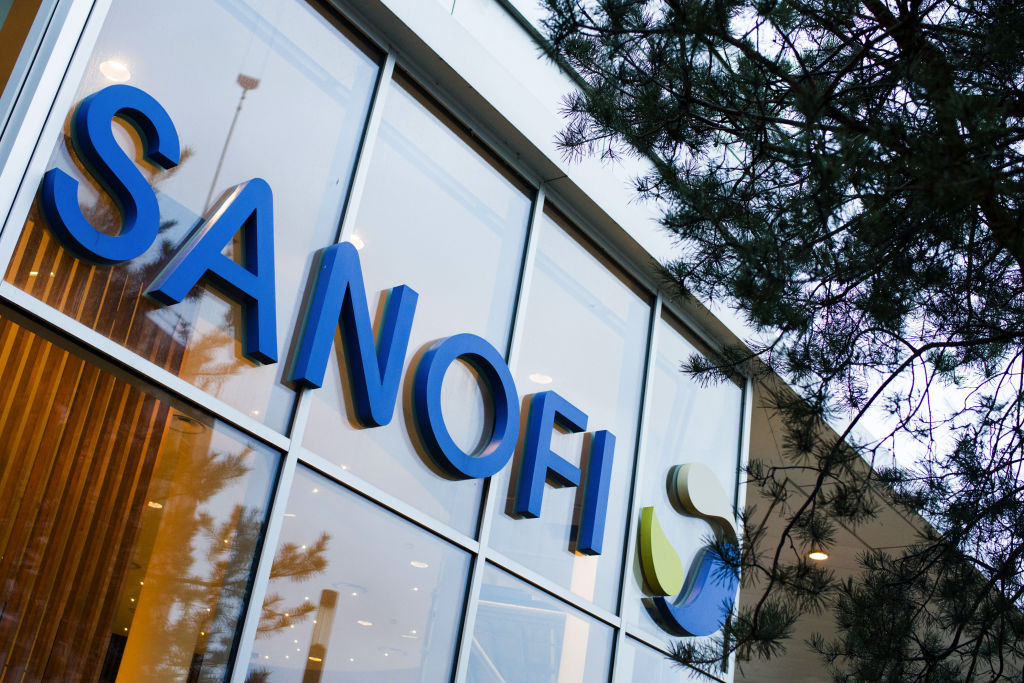
Sanofi’s cancer drug pipeline has only one antibody drug conjugate, the last remnant of a nearly two decade-old research alliance that has not panned out as well as hoped. But ADCs have seen a resurgence in recent years and Sanofi wants to ensure that it’s part of this growing field of cancer treatments, so it’s partnering with ADC specialist Seagen in a multi-drug agreement.
The collaboration announced Wednesday calls for Sanofi and Seagen to work together to develop ADCs for up to three cancer targets. Those targets remain undisclosed, but the companies say they’ve already chosen the first one. Sanofi will pay Seagen an undisclosed sum for each of the targets as they are selected. The partners will share in both the development costs of the ADCs and the profits of any drugs that are commercialized from the alliance.
ADCs are a type of cancer therapy comprised of an antibody that’s linked to a toxic drug payload. The antibody’s targeting of a specific protein on a cancer cell is meant to deliver a precise strike to tumors that spares healthy cells. Nonetheless, early ADC efforts produced drugs that were limited by their toxic effects. One of the challenges is that some of the cancer-killing part of the therapy can be released too early as it circulates in the body, resulting in toxicity in healthy tissue.
ADC developers have been trying to improve on the design of these molecules to ensure that the toxic drug payload stays on board until it reaches cancer cells. They’ve gotten better. Of the dozen or so FDA-approved ADCs, more than half of them cleared the regulatory bar in the past three years. Seagen has three approved ADCs, most recently Tivdak, a treatment for cervical cancer that the Bothell, Washington-based biotech developed in partnership with Genmab. The Danish biotech supplied the antibody used in the therapy, which was combined with ADC technology from Seagen. The Sanofi/Seagen alliance is structured similarly, pairing the U.S. company’s ADC tech with monoclonal antibodies from the French pharma giant.
The lone ADC in Sanofi’s pipeline, tusamitamab ravtansine, stems from a partnership with ImmunoGen. The drug targets a protein called CEACAM-5 and it is in development in several types of cancer. The most advanced of the lot is a Phase 3 test in non-small cell lung cancer. The alliance, struck in 2003, initially spanned multiple drugs.

A Deep-dive Into Specialty Pharma
A specialty drug is a class of prescription medications used to treat complex, chronic or rare medical conditions. Although this classification was originally intended to define the treatment of rare, also termed “orphan” diseases, affecting fewer than 200,000 people in the US, more recently, specialty drugs have emerged as the cornerstone of treatment for chronic and complex diseases such as cancer, autoimmune conditions, diabetes, hepatitis C, and HIV/AIDS.
In Seagen, Sanofi adds a partner that’s well established in ADCs with experience advancing this type of therapy through clinical development and regulatory approvals. Besides Genmab, Seagen’s partners include Astellas, Takeda Pharmaceutical, and Merck. But the new Sanofi/Seagen alliance has plenty of additional competitors in the growing ADC field. Pyxis Oncology, which licensed its ADC tech from Pfizer, went public last October and raised $168 million. That IPO was followed by a $103 million round of funding closed by startup Mythic Therapeutics. Both companies have technologies intended to ensure that an ADC drug payload reaches cancer cells, not healthy ones. Other ADC developers that have raised cash in the past year include Adcendo, Adcentrx, and Profound Bio, a biotech led by Seagen veterans.
Photo: Nathan Laine/Bloomberg, via Getty Images












